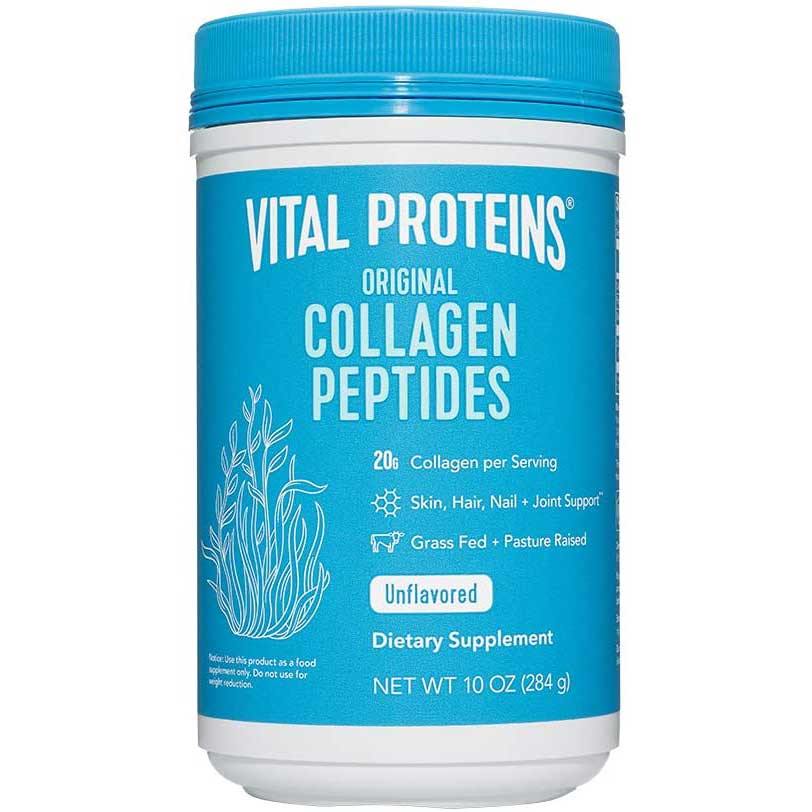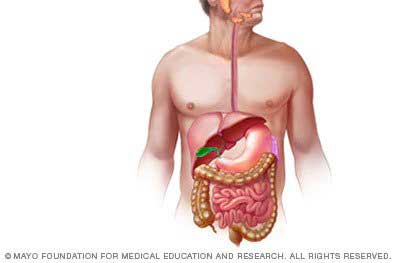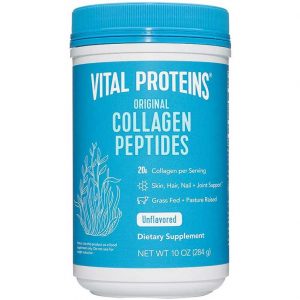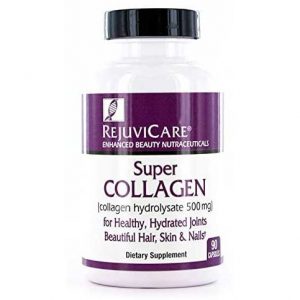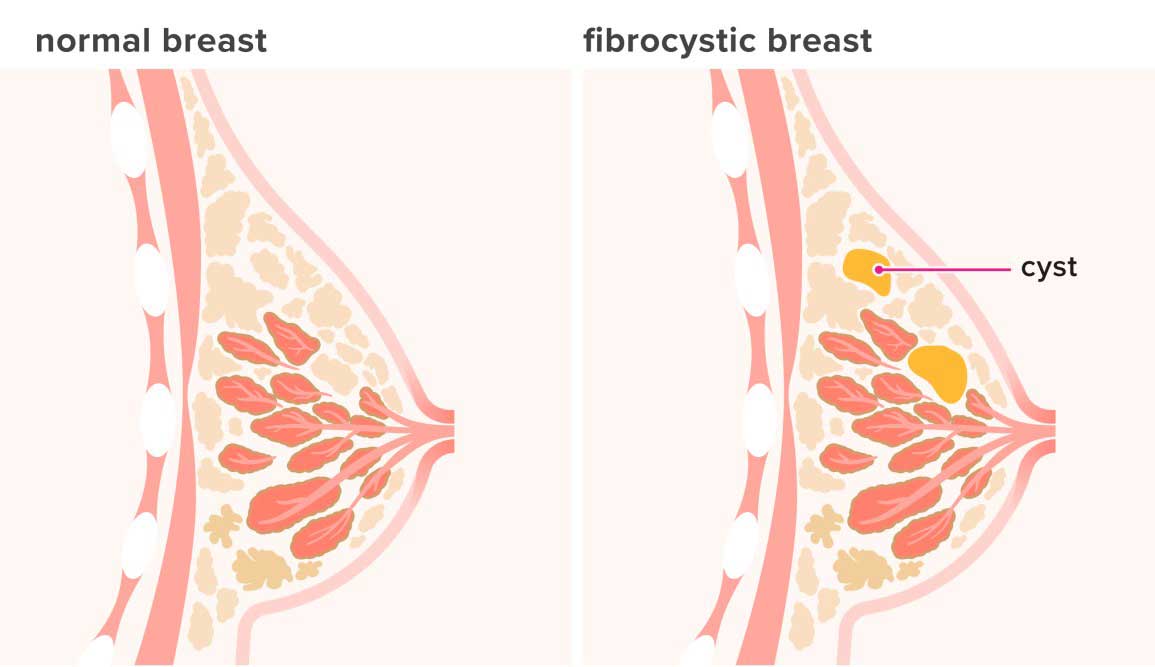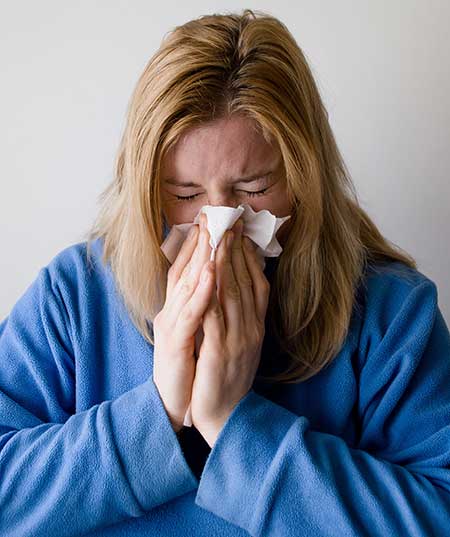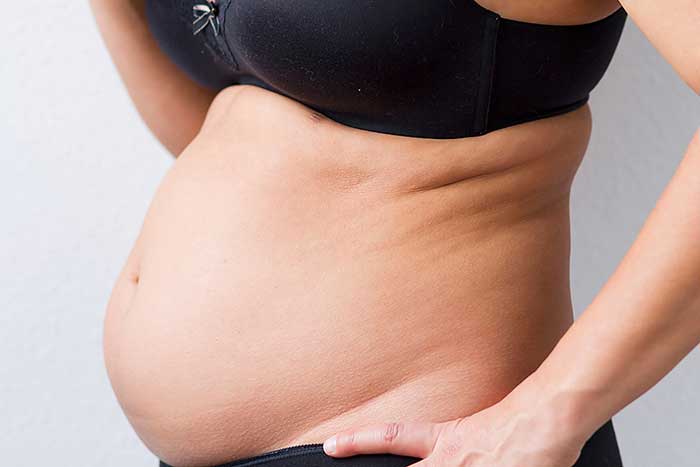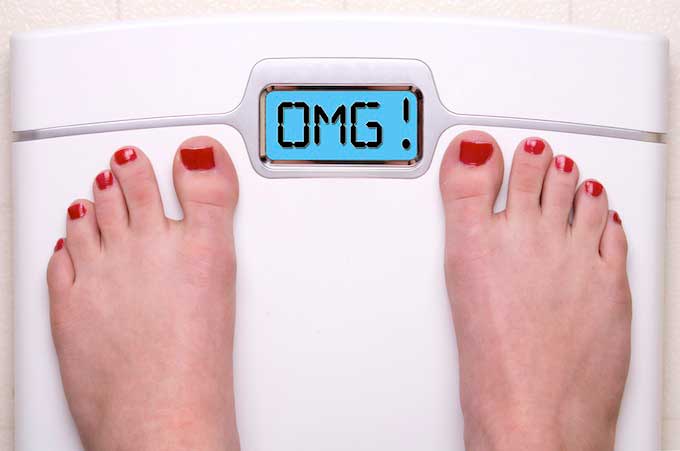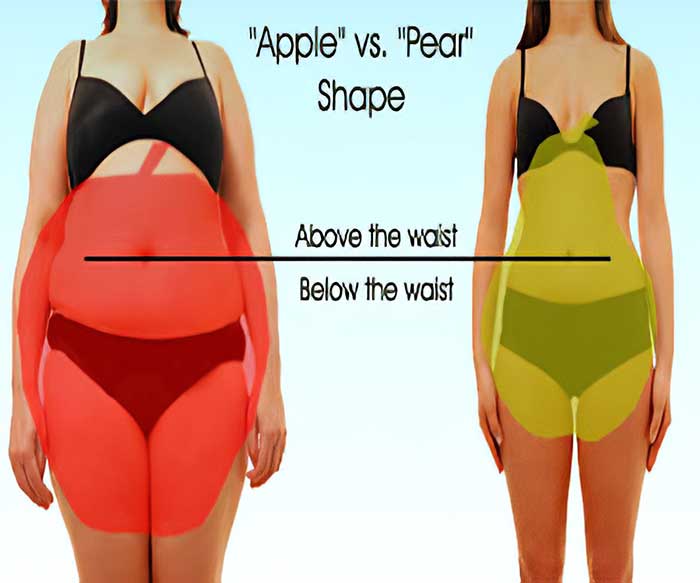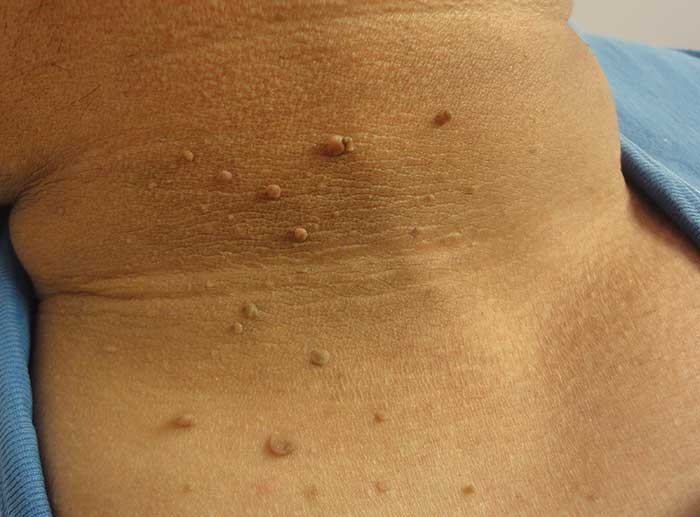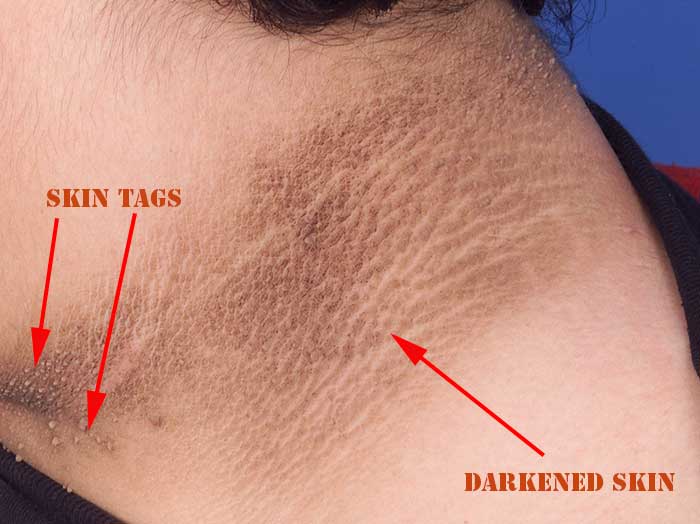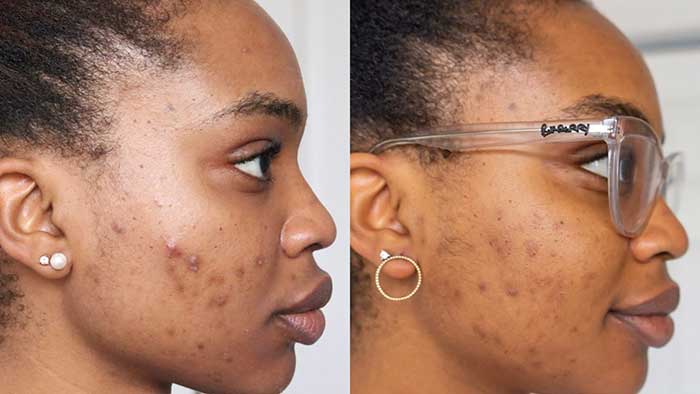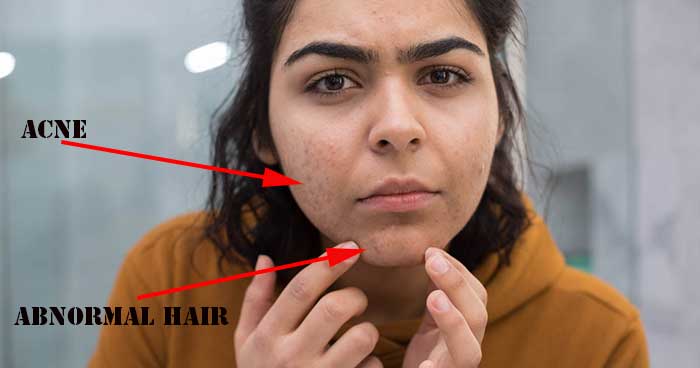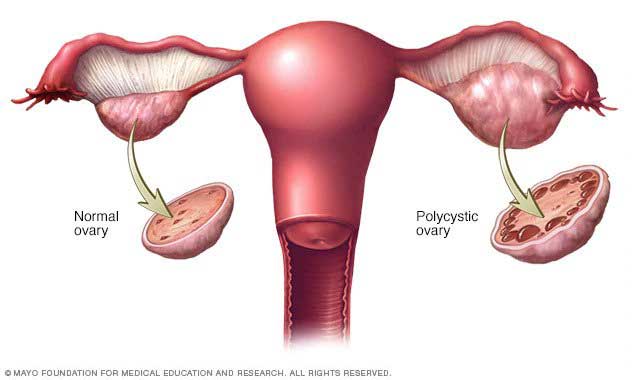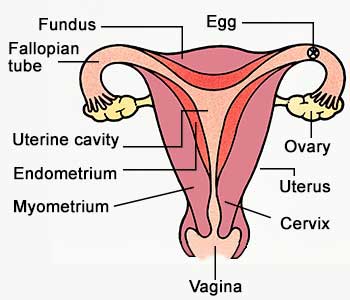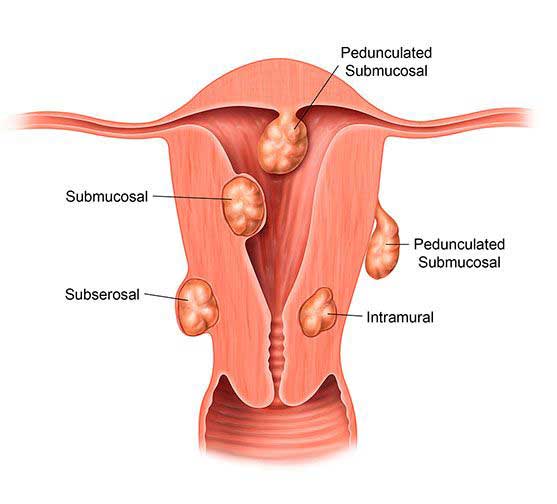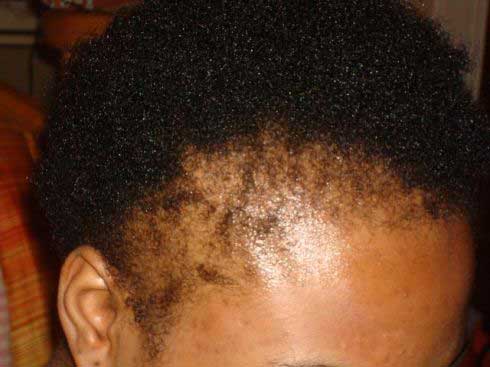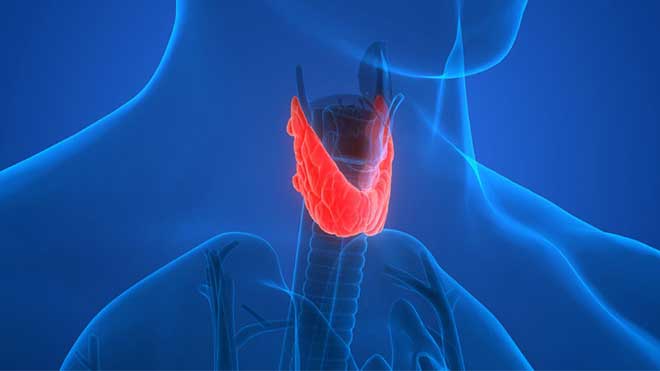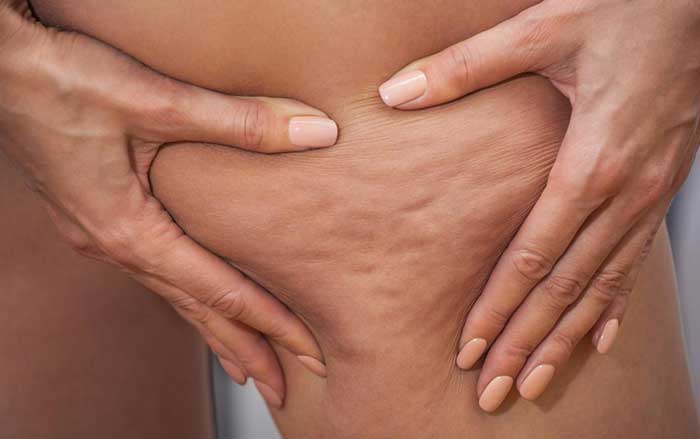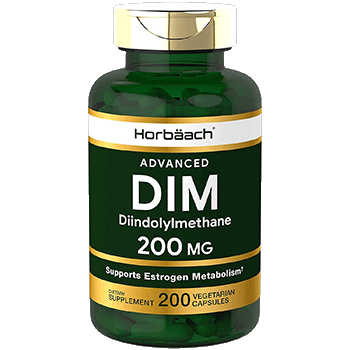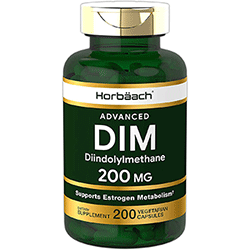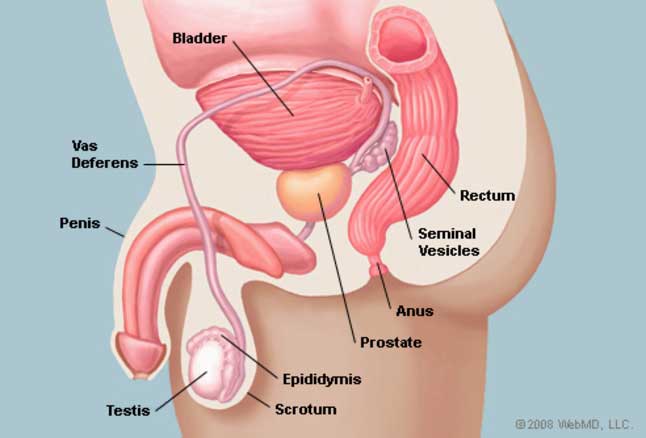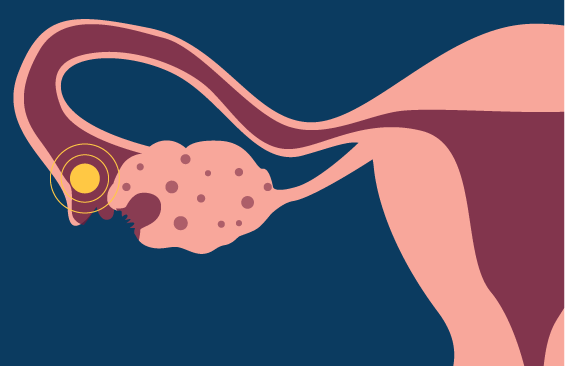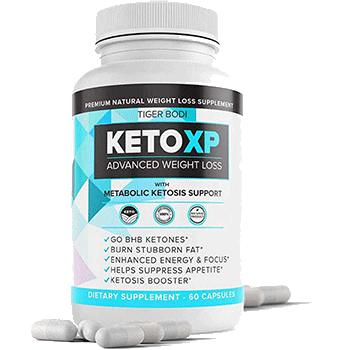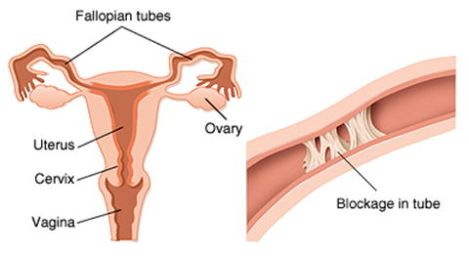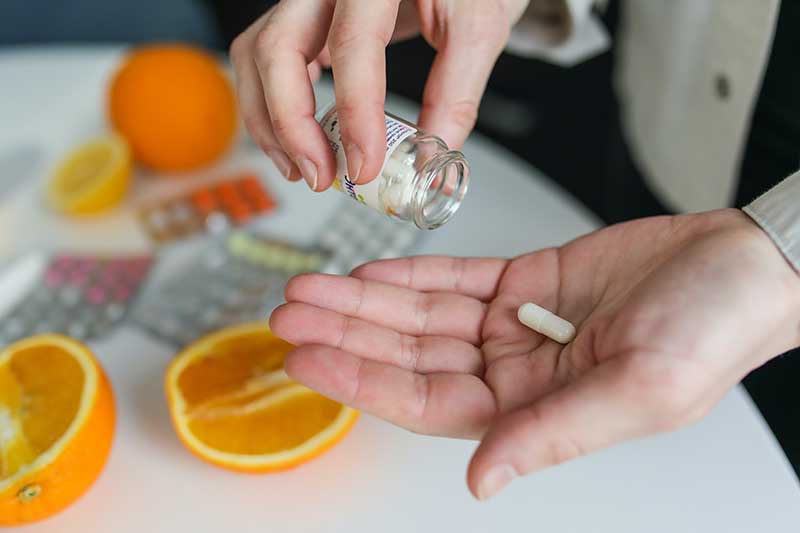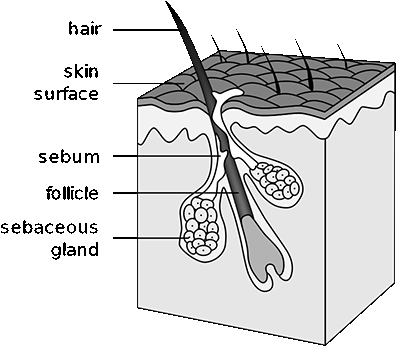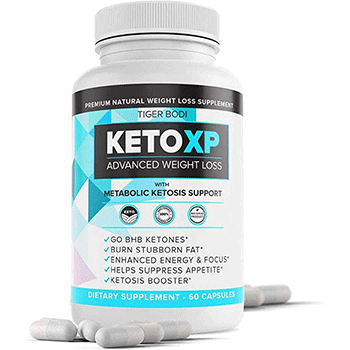
Collagen Supplements – 12 Amazing Benefits Of Taking Collagen Peptides
Who wouldn’t want to look and feel better – without expensive surgery, injections or cosmetics?
Here’s the name to remember – Hydrolyzed Collagen Peptides.
The benefits of collagen peptides are so powerful that you can start seeing incredible benefits after just a few weeks of taking collagen peptides – regardless of your current age (1).

As health and wellness continues to evolve, more and more people are finding themselves seeking remedies for beauty, mental and emotional well-being, weight loss, and so on.
This “get healthy” train is trending, and of you’ve been part of it, you’ve definitely heard of Collagen Peptides.
In this article we’ll break down collagen peptides, and how it can benefit you in your journey to a healthier you.
What Is Collagen?
Collagen is the most abundant protein in our bodies.
It’s the major component of connective tissue that makes up several body parts like tendons, ligaments, skin, muscle and bone (2).
Think of collagen as the “cement” that holds a building together. If cement fails, the building will become weak and fall apart.

Types Of Collagen
There are over 15 types of collagen (3), but there are about 5 of them are thought to be the main ones.
These types of collagen are categorized based on the types of organs they are found in.
- Type I: – Found in skin, tendons, bones, dentin, blood vessels, fibrocartilage and organs
- Type II: – Found in cartilage
- Type III: – Found in skin, ligaments, blood vessels & internal organs
- Type IV: – Basement membrane in various tissues. It’s found primarily in connective tissue
- Type V: – Found in muscles, hair, cell surfaces, placenta, blood vessel wall, synovium, tendon, lung, bone & cartilage
GOT QUESTIONS?

Get A Free Expert Consultation
Navigating supplements without professional help can be expensive and dangerous. We are here to help.
There’s no obligation.
Benefits Of Taking Collagen Peptides
There are several benefits of taking collagen peptides:
1: Collagen Is Good For Smooth, Soft, Youthful, Healthy Skin

Collagen (I & III) are major components of the skin providing strength and structure (6).
Each year, our collagen decreases by about 1%, leading to skin aging (7).
Taking collagen supplements has been shown to boost collagen levels in your skin, reduce wrinkles, and improve skin elasticity and hydration (8, 9, 10, 11).
Collagen peptides also stimulate your body to produce collagen on its own, as well as other proteins that help structure your skin, including elastin and fibrillin, reducing wrinkles (12, 13).
2: Collagen Peptides Can Boost Muscle Mass

Studies show collagen supplements help boost muscle mass after muscle mass loss due to age (14).
In fact, up to 10% of our muscle is made of collagen, making it an integral component in boosting muscle mass.
Collagen supplements have also been shown to help build muscle after resistance training, as well as help in post-exercise recovery (15, 16, 17).
3: Collagen Peptides Relieve Joint Pain & Promote Joint Health

Collage type II is predominately found in cartilage — the protective cushioning between joints (18).
As you get older, your risk for developing osteoarthritis increases – where the cartilage between joints wears away (19).
Taking collagen supplements has been shown to improve osteoarthritis and reduce joint pain overall (20, 21).
Researchers theorize that collagen supplements accumulate in cartilage and stimulate your tissues to make collagen. This lowers inflammation, better support of your joints, and reduced pain (22).
4: Collagen Supplements Keep Bones Strong

Our bones are primarily made of collagen, especially type I (23), which gives them structure and helps keep them strong (24).
As our body makes less and less collagen as we age, so do our bones deteriorate as we age. This may lead to conditions like osteoporosis, low bone density and bone fractures (25, 26).
Taking collagen supplements has been shown to inhibit the breakdown of bones (27, 28, 29, 30).
5: Collagen Promotes Heart Health

Since collagen provides structure to arteries, they may become weaker and fragile as we produce less and less collagen (31).
This can lead to atherosclerosis, a disease that causes arteries to narrow. Arteries carry blood from the heart to the rest of the body.
Collagen has been shown to reduce artery stiffness (32), and increase HDL “good” cholesterol (33). HDL is an important factor in the risk of heart conditions, including atherosclerosis.
6: Collagen Prevents & Reverses Cellulite And Stretch Marks
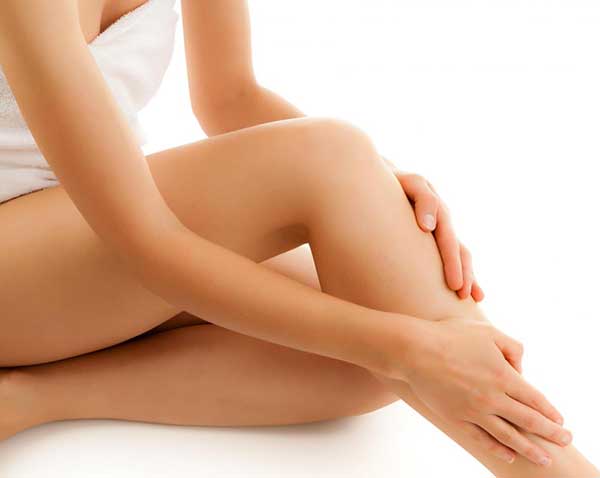
Cellulite is often caused by lack of collagen in the dermal layer of our body, as well as excessive fat.
Taking hydrolyzed collagen supplements has been shown to reverse stretch marks and cellulite (34).
7: Collagen Supplements Improve Hair & Nails

Collagen is the building block of hair and nails.
Taking collagen supplements has been shown to increase the strength of your nails by preventing brittleness. Additionally, it may stimulate your hair and nails to grow longer (35).
Power Hint:
Combine collagen with biotin for best results with hair and nails.
8: Collagen Peptides Can Improve Gut Health
Collagen is an essential component in the connective tissue of the gut. It works to maintain and strengthen the protective lining of the digestive tract.
A weakening in the intestinal walls can lead to digestive health issues like leaky gut syndrome.
Collagen supplements have been shown to heal and seal the gut in people with leaky gut syndrome (36, 37).
9: Collagen Peptides Can Help In Weight Management

Collagen can boost metabolism by increasing lean muscle mass. When combined with exercise, taking collagen helps increase skeletal muscle resulting in an increased metabolism over time.
At the same time, collagen also boosts appetite suppression (38).
One of the benefits of taking collagen peptides is the effect of feeling full – a reason why some people add protein powders and supplements to their diets.
The good thing about hydrolyzed collagen peptides is that it’s a clean, pure protein which can also keep your appetite in check.
10: Collagen May Help Alleviate Anxiety

Anxiety is a crippling condition that affects 18% of the American population (39), and probably hundreds of millions of people worldwide.
Collagen peptides has a high concentration of the amino acid glycerine, which has anti-anxiety properties.
Glycerine works to fight the fight or flight hormone called norepinephrine that is released when we experience anxiety.
This helps reduce anxiety.
11: Collagen Peptides May Help With Better Sleep

12: Collagen Supplements May Help Support Teeth & Gums
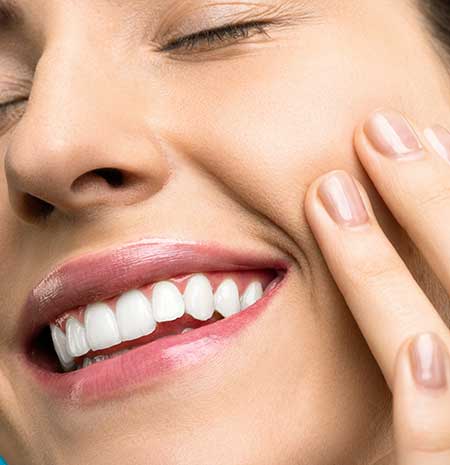
Another benefit of collagen is that it helps strengthen our teeth and gums.
While the dental industry is huge, sometimes all it takes is proper nutrition with more collagen.
Collagen can help to bind our teeth together and keep them firmly placed in the gums. Lack of collagen has been linked to linked to a loss of teeth.
In fact, collagen is made up of the fibers that are in the connective tissues that make up teeth and bones.
Collagen Side Effects
There are not many known risks of taking collagen supplements.
Avoid collagens made with common food allergens like eggs, shellfish and fish.
Some people have reported a bad taste in their mouth feeling of fullness and heartburn (43).
Frequent Questions
Why use collagen for supplement rather than from food?
Hydrolyzed collagen, or the collagen that is easiest for your body to absorb, isn’t found in food that you can eat–which means you’ll need a different way to best supplement your collagen production.
Collagen is especially important for your skin while losing weight. If you lose a large amount of weight in a short amount of time, your skin may not have the ability to bounce back, and you’ll end up with a lot of extra skin hanging around.
Collagen helps your skin be more elastic and tighter, which helps people look great while losing weight. If you supplement your diet with collagen, your skin will be more able to bounce back after your awesome weight loss journey!
What affects collagen?
Collagen production declines with age and exposure to factors such as smoking and UV light.
When can i see first results?
That may depend on what you’re looking for – if you’re taking it for joint pain, then you might start to feel a difference in 3-6 weeks.
However, if you’re taking it for skin, hair, and nails, you’ll really start noticing results after about two or three months, although some people have reported skin improvements in just 2-4 weeks.
What role does C-vitamin play in collagen?
Vitamin C has the potential to increase collagen synthesis, and reduce oxidative stress parameters. As you age, your collagen levels begin to decrease. Eating foods rich in vitamin C and protein can increase the levels and collagen in the body as both are important for skin.
Is it okay to use collagen during pregnancy and breastfeeding?
Yes, you can. Hydrolyzed collagen is a pure protein and is also suitable for consumption during pregnancy and lactation. This supplement is also suitable for the elderly and children.
If collagen is naturally occurring, why do we need to supplement with it?
Collagen is the most abundant protein in our bodies. Collagen is found in hair, skin, nails, ligaments, cartilage, tendons, bones and within blood vessel walls—all known as “connective tissue” in the body.
Beginning in our 20s, however, our bodies start producing less collagen, making it important to add it as a supplement.
I’ve heard that you should only mix collagen powder with cooler liquids (i.e. not hot coffee).
This is false. Hot water is one of the best known—and healthiest—ways to extract collagen peptides from their source. For example, when fish scales are heated in distilled water at 70 degrees, the collagen yield is only 6%… but when fish scales are heated to 100 degrees, the yield is 30%. So, keep on mixing your collagen in your hot liquid of choice!
Bottom Line
Collagen is the key component in our bodies, and is responsible for so many important functions of the body such as a healthy skin, bones, teeth, muscle, heart and cardiovascular health, digestive health and many others.
Taking collagen supplements is associated with a number of health benefits and very few known risks.
Collagen supplements are generally quite safe and easy to take, and definitely worth trying for their potential benefits.
Key takeaway:
Aging inevitably reduces our collagen production, estimated at 1% every year.As the most abundant protein in our body, taking collagen supplements offers huge health benefits that improve the quality of our lives.
These supplements are available in Kenya for pickup in Nairobi, or delivery countrywide.

